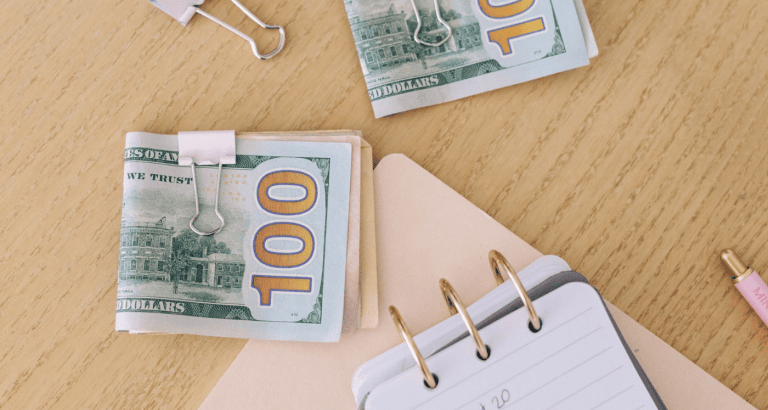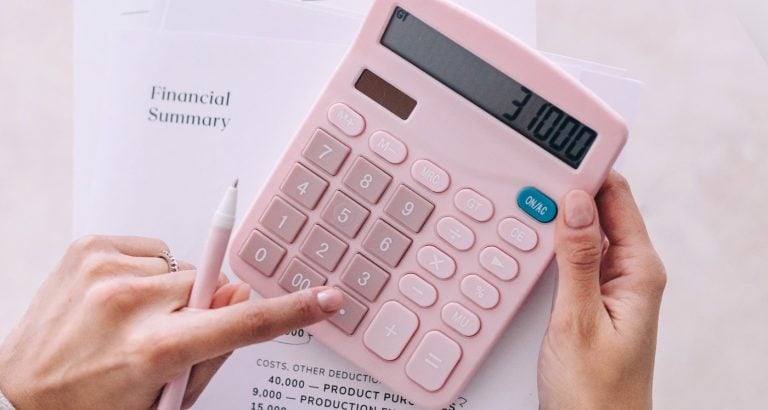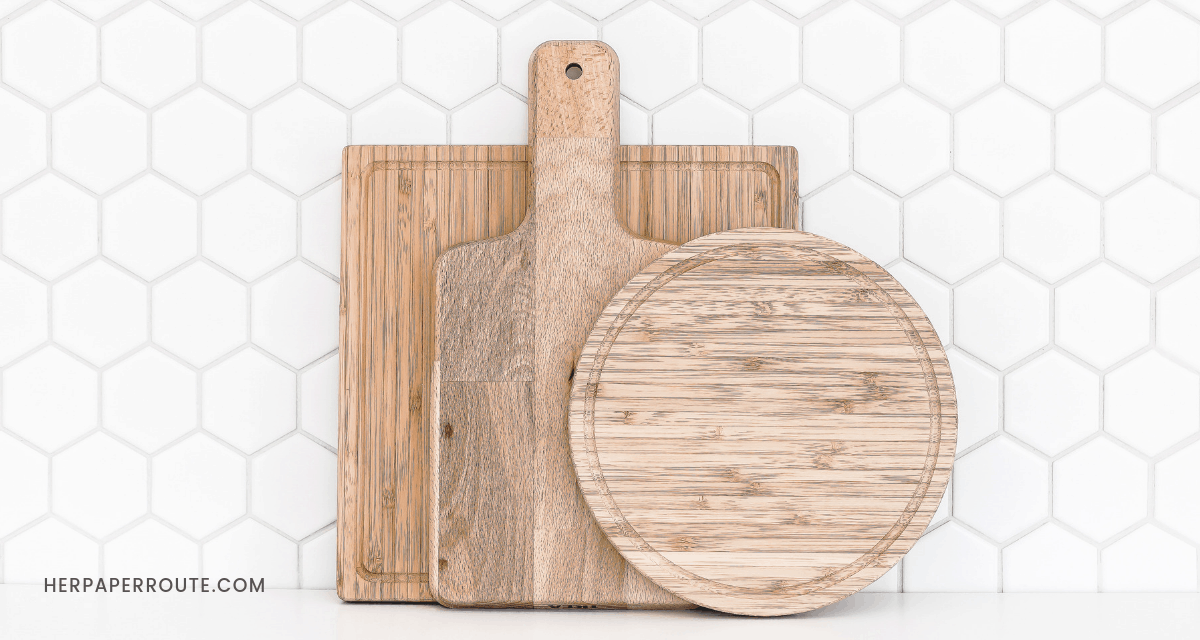How to Categorize Expenses [Understanding Your Personal Spending]
![How to Categorize Expenses [Understanding Your Personal Spending] 1 How To Categorize Expenses properly so you always have profit](https://herpaperroute.com/wp-content/uploads/2022/09/How-To-Categorize-Expenses.jpeg)
Expenses. We’ve all got them, but organizing them? That’s a whole other story.
A straightforward way to handle this is to categorize your expenses. There are various types of spending and we’ll learn about all of them here.
As an affiliate partner of various brands and sponsored content, HerPaperRoute may earn commission on qualifying purchases. Disclaimer
You’ll also find an easy method that will help you to keep control of your finances. So, here’s everything you should understand about how to categorize expenses.
What are the 4 expense types?
Before you can figure out your budget and how to effectively spend in specific categories, you need to know more about what they are.
There are 4 different types of expenses that you’ll encounter in your budget. They are fixed, variable, intermittent, and discretionary. Let’s go over each type in detail.
1. Fixed Expenses
Your fixed expenses are the simplest to figure out. These are the expenses that never change.
Month to month, they’re the same amount. Things like rent or mortgage, internet bills, and insurance payments usually fall into this category.
If you’re wondering if an expense is fixed, look back at your bank statement over a few months. If the cost remains the same each time, it’s likely a fixed expense.
2. Variable Expenses
After fixed expenses, there are variable ones. You know these will be due each month, but the amount changes.
Costs like gas for your car, groceries, and utility bills are typically variable expenses.
3. Intermittent Expenses
Intermittent expenses are easy to forget about and can be confusing. These are the expenses that come up throughout the year, but you don’t pay for them every month.
For example, insurance that is due every 6 months, clothing you buy once a season, or Christmas gifts. You usually know these expenses are coming up, but it’s tougher to plan for them because they are infrequent.
If you’re trying to decide if an expense is intermittent, check your budget and see if you paid the cost last month and the month before. Then check your annual spending.
If it comes up between 1-6 times, it’s intermittent.
- Hardcover Book
- Michalowicz, Mike (Author)
- English (Publication Language)
- 224 Pages – 02/21/2017 (Publication Date) – Portfolio (Publisher)
4. Discretionary Expenses
Discretionary expenses are the most fun things to buy, but it can be easy to not plan for them. These are non-essential things that you buy throughout the month.
You are probably aware of what they are – things like subscriptions, tickets to the movies, coffee, or other things you want but don’t need.
If you’re wondering if an expense is discretionary, ask yourself if it’s essential. If it isn’t and the amount changes monthly, it’s probably a discretionary expense.
How should I categorize my expenses?
The first thing you need to begin with when categorizing your expenses is to break each money expense down and be as specific as possible. Here are some common categories that you can use as examples.
To keep track of your income and expenses, use my Digital Profit planner!
1. Housing
Housing is an incredibly important expense, and it’s also likely to be the largest. Your housing expenses will either be the rent you pay each month or your mortgage if you own your home.
The amounts for this can vary wildly depending on where you live. But it’s good to plan for this as one of your first expenses because it keeps a roof over your head.
2. Utilities
Your utilities include things like electricity, water, sewer, trash, etc. These things keep your home functioning properly, so they should be very high up on your important budget expenses.
Utility costs also vary, but you can find out the average amount you pay by looking back at the last few months of payments.
3. Food
Again, very important; everyone needs groceries. Your grocery expenses will likely change a bit each week or month, depending on how often you grocery shop, but they should remain fairly constant.
Be sure to include not only groceries in your budget but any eating out at restaurants, take out, or coffee.
4. Transportation
Your transportation costs are things like gas, bike maintenance, a bus pass, or anything else that helps transport you to work and other activities. This cost is extremely variable because of gas prices and other circumstances.
Your costs may be quite a bit one month, and much less the next. Because of this, it might be best to overbudget for this by adding more to this category just in case it’s an expensive month.
5. Insurance
Your insurance protects you if something happens to your home, car, property, and more. Insurance costs will likely be the same each month, but what you pay will vary quite a bit.
There are tons of factors that contribute, from homeowner’s insurance to car insurance.
6. Health Care
Your health is incredibly important, and health care is a category that should be in your budget. Healthcare can include health insurance, any medication costs, and some extra savings if needed.
7. Savings
Your savings should not be neglected when you work on your budget categories. If you include saving as part of your budget, you’re more likely to stick with it.
You can save up an emergency fund and also save for other purchases and save money to invest.
8. Debt
If you have some debt you need to pay off, you should include it as a budget category. Your amount will be your monthly minimums and anything extra you can pay off.
Because of this, this category can be variable.
9. Education
Your education may include many things, depending on your circumstances. For example, you might be paying for college, private schooling for your kids, or courses that you want to take.
The amount you pay each month may not vary that much, but it’s definitely a thing to remember in your budget.
Related: Best Places to Save for College
10. Entertainment
Entertainment is a discretionary expense. You don’t need it but it’s nice to include in your financial plans.
The entertainment category includes things like subscriptions, going to the movies, or buying other fun things.
11. Clothing
Clothing is a great example of an intermittent expense. You probably don’t need new clothes every month, but it’s likely that you’ll buy them 2-3 times a year.
Clothing costs will vary because you don’t always need the same items. Before shopping, include clothes shopping in your monthly budget.
12. Pets
Your pets may cost more than you think! With veterinary expenses, food, grooming appointments, and more, things add up.
Consider making your pet category part of your monthly budget. It can be a fixed expense where you just spend the same amount each month unless something unexpected happens.
How do I organize my personal expenses?
Maybe this all seems like a lot of categories, but you aren’t sure how to turn it into something that is easy to track and organize. Here’s what you can do to make categorizing your personal expenses easy.
Track your expenses
To start off, you should begin tracking your expenses. Because we can probably all agree that there can be a huge difference between what we think we spend throughout the week and what we actually spend. So track your expenses for a month or two.
You might find that you’ve way underbudgeted (or overbudgeted) for various categories. But instead of going along with the same budget and being misinformed, you can easily solve your problem.
Read your statements
Your bank statements will help you keep good track of your money. Take note of the statements you receive online or the ones you get in the mail.
Or, if you do mostly electronic banking, check your bank app for your spending history. Then you can truly see where your money is going.
Set up a system to pay your bills
After you do all this, you can then set up an accurate system to pay your bills. Since you won’t be guessing but will actually know how much money you’re spending, you can save yourself a lot of trouble.
There are a lot of ways to create a spending system. You can do automatic payments, or if you find that to be too much, pay your bills manually.
You can definitely make it simpler for yourself by trying to get all of your bills paid around the same date, preferably near the date you get paid. Then you can pay for everything at once and know that it’s done for the month.
There are also budgeting apps or templates that can help you to make a budget if you’re still learning what works for you. In short, know how much you’re spending, create a system, and then stay consistent, which will give your system time to work.
These are the basic expense categories that most people have.
While your expenses may differ slightly from the ones here, depending on your circumstances, you can probably get a pretty good idea of your basic living costs by reading this article. Use these categories to help you plan and create a system that works.
As always, remember to stick to a budget that truly helps you with your money. Remember that there are various expense types – including costs that happen every month and some that are quite rare. But even if they don’t come up often, it’s still important to plan for them.
Related Articles:
![How to Categorize Expenses [Understanding Your Personal Spending] 7 hand separating coins and money into separate piles showing how to categorize expenses](https://herpaperroute.com/wp-content/uploads/2022/09/how-to-categorize-your-expenses.jpg)
Follow along on Instagram!


![How to Categorize Expenses [Understanding Your Personal Spending] 2 hand separating coins and money into separate piles showing how to categorize expenses](https://herpaperroute.com/wp-content/uploads/2022/09/how-to-categorize-your-expenses-180x180.jpg)
![How to Categorize Expenses [Understanding Your Personal Spending] 3 therapy findr - best way to find online therapists](https://herpaperroute.com/wp-content/uploads/2025/07/therapy-findr-ad.jpg)
![How to Categorize Expenses [Understanding Your Personal Spending] 4 Profit First: Transform Your Business from a Cash-Eating Monster to a Money-Making Machine (Entrepreneurship Simplified)](https://m.media-amazon.com/images/I/41QW8q77LUL._SL160_.jpg)
![How to Categorize Expenses [Understanding Your Personal Spending] 5 the profit planner for entrepreneurs and content creators 0 best digital budget planner](https://herpaperroute.com/wp-content/uploads/2024/02/the-profit-planner-for-entrepreneurs-and-content-creators.png)
![How to Categorize Expenses [Understanding Your Personal Spending] 6 masterclass become a content creator](https://herpaperroute.com/wp-content/uploads/2024/09/become-a-content-creator-free-class.jpg)
![How to Categorize Expenses [Understanding Your Personal Spending] 8 entrepreneur planner profit business planner notion](https://herpaperroute.com/wp-content/uploads/2024/02/profit-business-planner_lg-copy.jpg)
![Advantages and Disadvantages of Budgeting [You Need To Know] 9 Advantages and Disadvantages of Budgeting cash and calculator on pink background](https://herpaperroute.com/wp-content/uploads/2021/11/Advantages-and-Disadvantages-of-Budgeting-768x410.png)



